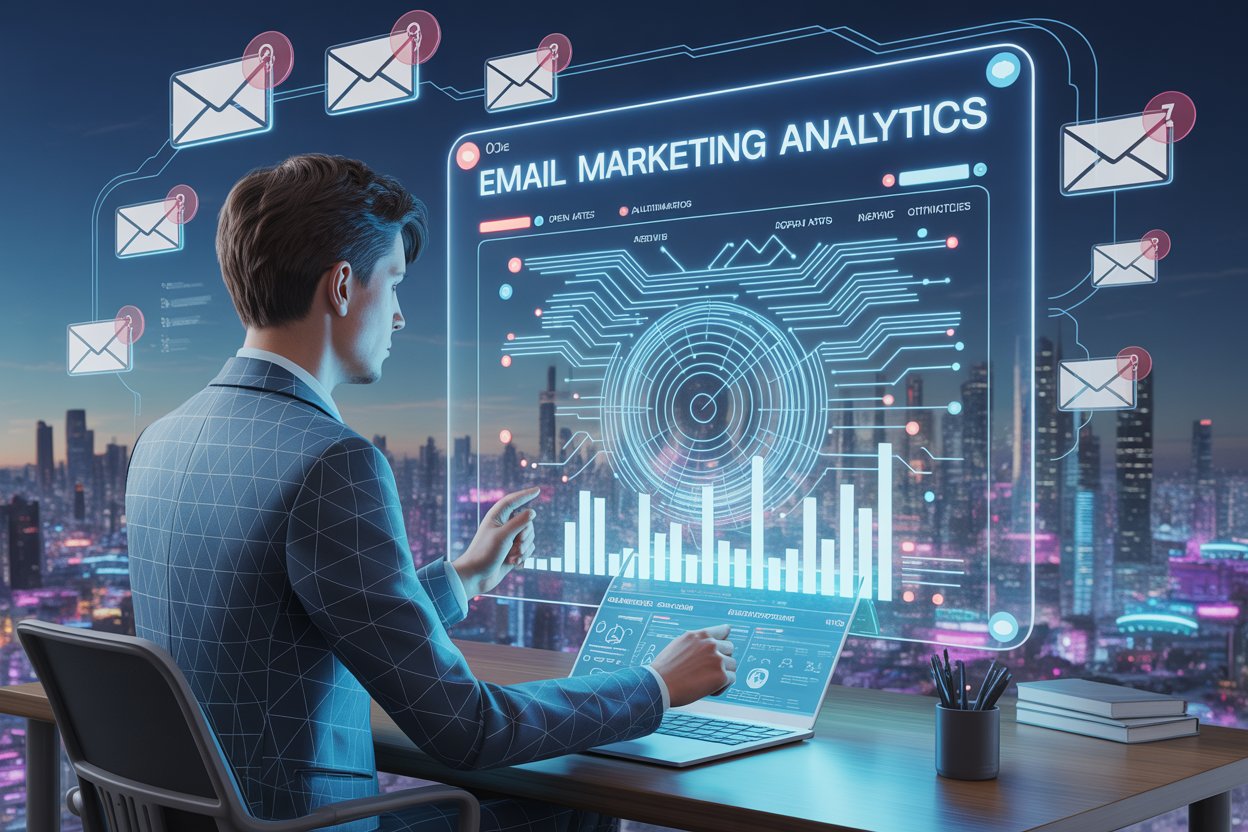Email Marketing for Startups
Introduction to Email Marketing for Startups
Email marketing is one of the most cost-effective and high-return digital marketing strategies available for startups. It allows new businesses to build trust, engage with customers, and drive conversions — all while maintaining full ownership of their communication channels.
In today’s fast-paced startup ecosystem, standing out and reaching the right audience is critical. Email marketing offers direct access to potential customers and investors, making it a core pillar for early-stage business success in the USA and beyond.
Why Email Marketing is Crucial for Startups

High ROI for Low Investment
Email marketing offers an average return on investment (ROI) of $36 for every $1 spent, according to multiple marketing studies. For startups with limited marketing budgets, this is a valuable opportunity to generate leads and sales without breaking the bank.
Direct and Personalized Communication
Unlike social media algorithms that limit organic reach, emails go directly into a user’s inbox. This means you control the narrative and can personalize messages based on user behavior, preferences, or purchase history.
Long-Term Customer Relationship Building
By providing valuable content, startups can nurture leads over time, build loyalty, and eventually convert them into paying customers. It’s a long-term growth strategy that compounds with consistency.
Setting Up Email Marketing for Your Startup
Choose an Email Marketing Platform
There are several affordable and user-friendly platforms suitable for startups:
- Mailchimp
- ConvertKit
- Brevo (formerly Sendinblue)
- MailerLite
Choose a platform that offers automation, A/B testing, list segmentation, and analytics.
Build a Quality Email List
Instead of purchasing email lists (which violates Google policies and is ineffective), focus on organic list-building methods:
- Add signup forms on your website.
- Offer a lead magnet (e.g., free guide or discount).
- Use popups with exit intent.
- Collect emails at events or webinars.
Make sure to include consent checkboxes and follow CAN-SPAM and GDPR compliance rules.
Segment Your Audience
Segmentation means dividing your email list into smaller groups based on criteria like:
- Demographics
- Location
- Purchase history
- Engagement level
Startups can benefit from segmentation by sending highly relevant messages to each group, improving open and click-through rates.
Crafting Effective Email Campaigns
Welcome Emails
First impressions count. Your welcome email should:
- Thank the subscriber
- Introduce your brand
- Set expectations
- Offer value (discount, freebie, etc.)
Educational and Informative Emails
Share helpful content like:
- How-to guides
- Case studies
- Blog summaries
- Industry news
This builds trust and positions your brand as an authority in your niche.
Promotional Emails
Use these to:
- Announce new products
- Run time-sensitive discounts
- Promote limited-time offers
Be mindful not to send too many sales emails. Balance value with promotions.
Re-engagement Campaigns
For inactive subscribers, run a re-engagement series:
- Ask for feedback
- Offer a special incentive
- Provide an easy opt-out option
This keeps your list healthy and engaged.
Writing Compelling Email Content
Subject Lines That Grab Attention
Your subject line is the first thing users see. Make it:
- Short and relevant
- Action-oriented
- Personalized if possible
Avoid spammy words like “Buy Now” or “Free $$$” as they can trigger spam filters.
Clear and Concise Copy
- Use short paragraphs and bullet points.
- Keep sentences simple.
- Focus on one goal per email (e.g., “read this blog” or “buy this product”).
Strong Call-to-Action (CTA)
A clear CTA tells the reader what to do next:
- “Shop Now”
- “Read More”
- “Sign Up for the Webinar”
Use buttons and link text to make your CTA visually distinct.
Automating Your Email Workflow
Email automation saves time and increases efficiency. Examples of automation workflows include:
- Welcome sequences
- Abandoned cart reminders
- Birthday or anniversary emails
- Product recommendation sequences
Most email platforms have easy drag-and-drop automation builders suited for non-technical users.
Measuring the Success of Email Campaigns
Track and analyze key performance metrics such as:
- Open Rate – % of recipients who opened your email.
- Click-Through Rate (CTR) – % who clicked on a link in your email.
- Conversion Rate – % who completed the desired action.
- Bounce Rate – % of emails not delivered.
- Unsubscribe Rate – % who opted out.
Use these insights to improve future campaigns.
Common Mistakes to Avoid in Startup Email Marketing
Buying Email Lists
Purchasing email lists can lead to:
- Spam complaints
- Low engagement
- Violations of email marketing laws and Google policies
Ignoring Mobile Optimization
More than 60% of emails are opened on mobile devices. Always:
- Use responsive templates
- Keep subject lines short
- Ensure CTA buttons are easy to tap
Not Testing Campaigns
A/B testing subject lines, content layout, and CTAs can improve results significantly. Always test one element at a time to understand what works.
Legal Considerations for Email Marketing in the USA
CAN-SPAM Act Compliance
Startups must follow the CAN-SPAM Act, which requires:
- A valid physical mailing address
- An unsubscribe link
- No misleading headers or subject lines
GDPR (if targeting EU customers)
Even if your startup is based in the USA, GDPR applies if you collect data from EU residents. Key rules:
- Get clear consent
- Allow data access or deletion on request
- Store data securely
Integrating Email Marketing with Other Channels
Email marketing works best when integrated with:
- Social Media: Share email signups through Facebook or LinkedIn.
- Website Popups: Trigger offers based on user behavior.
- Content Marketing: Promote your blog through regular newsletters.
This omnichannel approach increases engagement and brand visibility.
Future Trends in Email Marketing for Startups
AI and Personalization
Artificial intelligence is enabling more dynamic content and better personalization. Expect smarter segmentation and predictive email flows.
Interactive Emails
Clickable elements like image carousels, product previews, and surveys inside emails are becoming more common, offering higher engagement.
Conclusion
Email marketing remains a powerful tool for startups in the USA. By building a targeted email list, crafting personalized content, and respecting legal and ethical standards, new businesses can drive sustainable growth, build relationships, and convert leads into loyal customers.
Start small, test regularly, and always prioritize your audience’s needs. With consistency and strategy, email marketing can become a cornerstone of your startup’s digital success.






